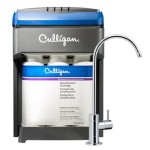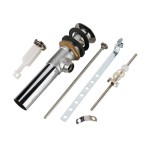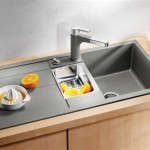The Essential Guide to Portable Sinks for Food Trucks
Food trucks have revolutionized the culinary landscape, offering diverse cuisines in mobile settings. However, operating a food truck involves adhering to stringent health and safety regulations, with access to adequate handwashing facilities being paramount. Portable sinks are indispensable tools for food truck operators, ensuring hygiene and regulatory compliance.
The absence of proper sanitation can lead to foodborne illnesses, jeopardizing public health and damaging a food truck's reputation. Therefore, understanding the requirements for portable sinks, selecting the right model, and maintaining it properly are crucial aspects of running a successful and safe food truck business.
Key Points to Consider When Choosing a Portable Sink
Choosing the right portable sink for a food truck requires careful consideration of various factors, including water capacity, sink basin size, portability, and construction materials. The sink must be adequate for the volume of business and the types of food being prepared.
Water capacity is a primary concern. Depending on local regulations and the number of employees, a sufficient supply of both fresh and wastewater is necessary to meet handwashing requirements. Insufficient water capacity can lead to frequent refills, disrupting workflow and potentially violating health codes. Consider sinks with larger tanks or the ability to connect to external water sources when feasible. The size of the basin is also important. It should be large enough to comfortably wash hands and potentially small food preparation utensils without excessive splashing. A deeper basin minimizes splashing and conserves water.
Portability is inherent in the nature of food trucks. A bulky, difficult-to-move sink defeats the purpose. Look for sinks with sturdy wheels and handles for easy maneuvering. Consider the sink's weight, especially when full of water. A lightweight design facilitates setup and breakdown at different locations. Finally, the construction materials of the portable sink directly affect its durability and lifespan. Stainless steel is ideal due to its resistance to corrosion, ease of cleaning, and compliance with sanitation standards. Avoid sinks made of flimsy plastic that can crack or warp under heavy use. Ensure that all components, including pumps and faucets, are made of food-grade materials.
Understanding Regulatory Requirements for Handwashing Facilities
Local health departments dictate the specific requirements for handwashing facilities in food trucks. These regulations are designed to prevent the spread of foodborne illnesses and ensure public safety. Food truck operators must thoroughly understand and comply with these requirements to avoid fines, penalties, or even the suspension of their operating permit.
Most regulations require a minimum of one dedicated handwashing sink in the food preparation area. This sink must be readily accessible to all employees at all times. Access cannot be obstructed by equipment or supplies. The sink must provide both hot and cold running water, typically at a temperature of at least 100°F (38°C). The water supply must be potable, meaning it is safe for human consumption. A dedicated water heater is often necessary to maintain the required water temperature.
In addition to the sink itself, regulations mandate the presence of soap and paper towels or a hand dryer. Liquid soap dispensers are generally preferred over bar soap, as they are more hygienic. Paper towel dispensers must be kept stocked, and a waste receptacle must be provided for used towels. Some jurisdictions may allow the use of air hand dryers, but these must meet specific performance standards. Furthermore, many regulations require signage that clearly instructs employees to wash their hands. These signs should be prominently displayed near the handwashing sink. Regular inspection by health officials often includes verification that all handwashing requirements are met.
Failure to comply with handwashing regulations can have severe consequences. Health inspectors can issue warnings, fines, or even temporarily shut down a food truck until the violations are corrected. Repeated violations can lead to the permanent revocation of the operating permit. Moreover, a food truck that is known for unsanitary practices can suffer significant damage to its reputation, leading to a decline in business. Therefore, investing in a high-quality portable sink and ensuring compliance with all handwashing regulations is a critical investment in the long-term success of a food truck business.
Maintaining and Sanitizing Your Portable Sink
Proper maintenance and sanitation are essential for ensuring the effectiveness of a portable sink and preventing the spread of bacteria and other contaminants. Regular cleaning and disinfection are necessary to maintain a hygienic environment for food preparation and handwashing.
The sink basin should be cleaned at least once a day, or more frequently if visibly soiled. Use a food-grade cleaner and sanitizer to remove food particles, grease, and other debris. Rinse the sink thoroughly with potable water after cleaning. Pay particular attention to areas around the drain and faucet, as these are common breeding grounds for bacteria. Empty and clean the wastewater tank regularly to prevent odors and the growth of microorganisms. The frequency of emptying depends on the volume of use, but it is generally recommended to empty the tank at the end of each day.
The fresh water tank should also be sanitized periodically to prevent the growth of algae and bacteria. Drain the tank completely and then fill it with a solution of water and bleach. Follow the manufacturer's instructions for the appropriate bleach concentration. Allow the solution to sit in the tank for at least 30 minutes, then drain and rinse thoroughly with potable water. Inspect the sink's components regularly for signs of wear and tear. Replace any damaged or worn parts, such as faucets, pumps, or hoses. Leaks should be repaired immediately to prevent water waste and potential safety hazards. Keep the sink clean and organized. Avoid storing items on top of the sink or around it, as this can obstruct access and create a unsanitary environment.
Implement a regular maintenance schedule to ensure that all tasks are performed consistently. This schedule should include cleaning, sanitizing, inspecting, and repairing the portable sink. Train employees on proper handwashing techniques and the importance of maintaining a clean and sanitary work environment. Reinforce these practices regularly to ensure compliance. By following these maintenance and sanitation guidelines, food truck operators can ensure that their portable sinks are always in optimal condition, providing a safe and hygienic environment for food preparation and handwashing.
In addition to the practical aspects of selecting, installing, and maintaining a portable sink, it is essential to consider the environmental impact of the unit. Consider using water-saving faucets and low-flow pumps to conserve water. Dispose of wastewater properly, following local regulations. Avoid dumping wastewater into storm drains or directly onto the ground. Choose biodegradable cleaning and sanitizing products whenever possible. By adopting these environmentally responsible practices, food truck operators can minimize their impact on the environment and contribute to a more sustainable food industry.
The specific features and capabilities of portable sinks continue to evolve. Newer models may incorporate advanced filtration systems, automated water heating, and digital monitoring systems. Stay informed about the latest innovations in portable sink technology to ensure that your food truck is equipped with the best possible handwashing facilities. By staying current with these advancements, you can improve efficiency, reduce costs, and enhance the overall hygiene of your food truck operation.
Beyond water, proper disposal of waste, especially food scraps, is important for maintaining hygiene. While a portable sink primarily addresses handwashing, managing food waste prevents cross-contamination and minimizes pest attraction. Implement procedures for collecting food waste in appropriate containers and disposing of it responsibly in designated areas or compost facilities. Proper training of food truck staff ensures adherence to these procedures, further reducing the risk of contamination.
In conclusion, investing in a suitable portable sink is not merely about meeting regulations but about ensuring food safety and customer well-being. A well-maintained and appropriately chosen sink is a fundamental element in the success of a food truck business. As a food truck owner, prioritize selecting, operating, and maintaining your portable sink diligently. By doing so, you uphold the highest standards of hygiene and protect your customers and your business.

4 Compartment Portable Sink

Lavatorio Pia Movel Portatil Cuba Food Truck Camping Cinza

60 Ins Portable Food Truck Wash Station 4 Compartment Sink Wal Com

Elite Kitchen Supply 60 In Freestanding Stainless Steel Portable Food Truck Wash Station 4 Compartment Sink Eps4c60 18 Gauge The Home

4 Compartment Portable Sink Pratt S Direct

Lavatorio Pia Movel Portatil Cuba Food Truck Camping Cinza R 1 453 9

Portable Sink Prep Table

Reviews For Elite Kitchen Supply 60 In Freestanding Stainless Steel Portable Food Truck Wash Station 4 Compartment Sink Eps4c60 18 Gauge Pg 1 The Home

Small Cart Size 3 Compartment Sink Aluminum

Sink Mobile Concession 3 Compartment Hot Water Large Basin Hand







